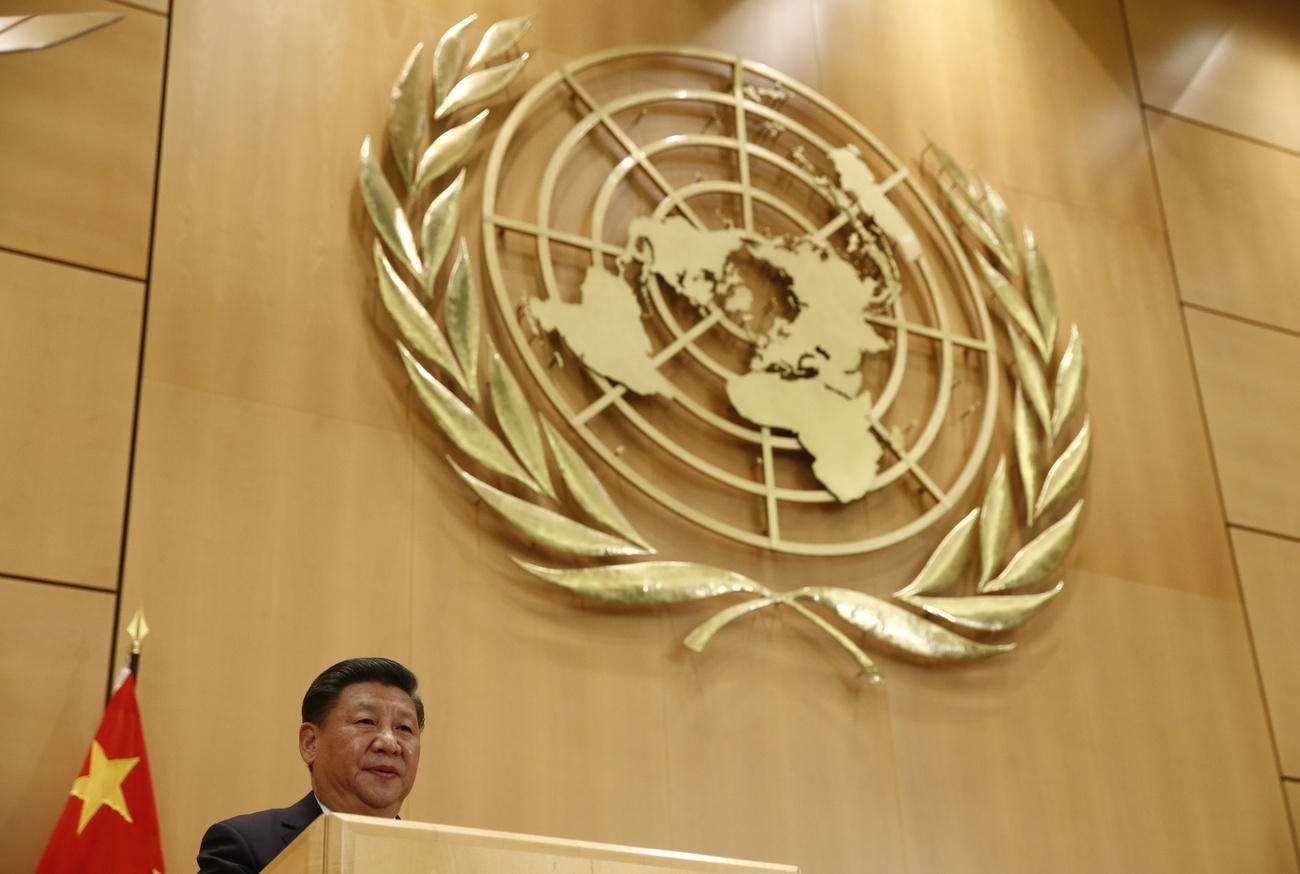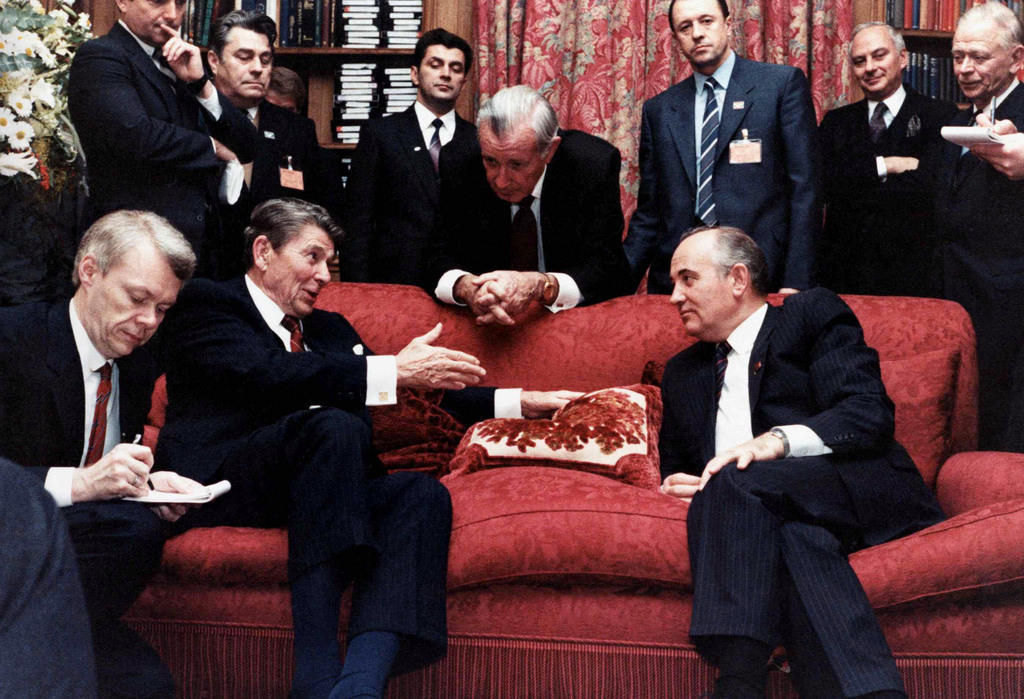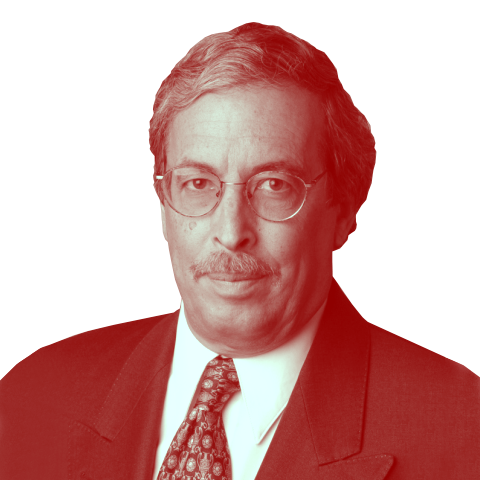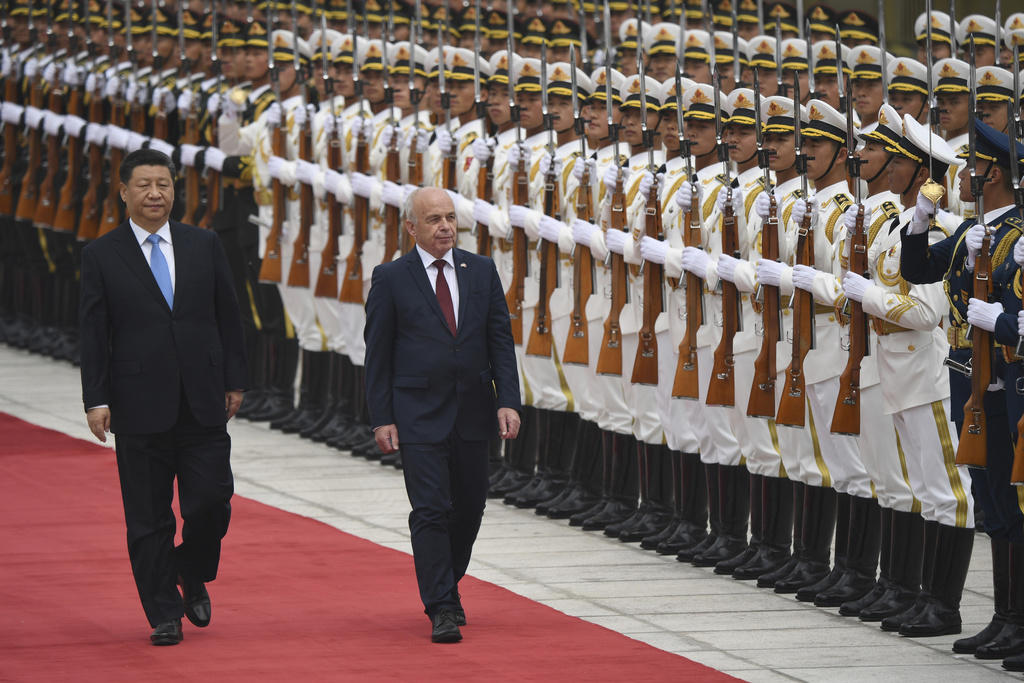How China is filling America’s shoes at the United Nations
As the United States slowly withdraws its leadership from the multilateral system, China appears to be filling the political vacuum. Daniel Warner looks at the consequences of this “profound change”.
Vacuums do not last long in nature. In biology, homeostasis represents the body’s attempt to reach equilibrium. In a void, elements will flow towards spaces of less density until an equilibrium is reached. In political systems, the same phenomenon may hold true.

The United States was a moving force behind the creation of the United Nations. Although the organisation was established during the Second World War, with five permanent members of the Security Council each with veto power, the US was a leader of the multilateral system.
Donald Trump’s campaign of “America First” has turned out to be a frontal assault on the UN and multilateralism. Whether withholding its contribution to the organisation (resulting in drastic cuts to its day-to-day business), withdrawing from the UN Human Rights Council or appointing representatives in New York and Geneva who are opposed to any consensual leadership, the US has gone beyond “benign neglect”. Trump and his followers see the UN as an affront to their sovereignty, just as they see international law (or any law) as unjustly limiting their power.
‘What’s in this for us?’
The UN system has been in limbo since Trump’s inauguration in 2016. There has been no American leadership. In New York, Ambassador Nikki Haley and her successor Kelly Craft have continually undercut consensual leadership with the refrain of “What’s in this for us (US)?”
In Geneva, where the Carnegie, Ford and Rockefeller foundations were instrumental in creating “International Geneva”, there was no American ambassador for two and a half years. The empty broken chair at the Place des Nations figuratively represents the obvious dismissal by President Trump of International Geneva and its pivotal role in human rights and humanitarian law. The Conference on Disarmament is blocked; the World Trade Organization (WTO) has become second fiddle to bilateral negotiations with ad hoc arrangements trying to salvage the non-functioning Appellate Body.
And the appointment of Andrew Bremberg to finally fill the US Ambassador’s post in Geneva last October does not bode well for the future of US leadership. The 41-year-old has a career in domestic politics, having worked with Republican Senator Mitch McConnell in the White House on internal affairs. Ambassador Adlai Stevenson he is not. The former governor of Illinois, twice presidential candidate, helped found the UN in the 1940s. Stevensen later became US Ambassador to the UN and helped assuage international tensions during the Cold War.

More
Trump jitters cast shadow over close US-Geneva ties
Chinese determination
Can a system as large as the UN function without leadership? Can multilateralism exist without top down leadership from a major power? To return to homeostasis: Can the political vacuum left by America’s withdrawal from the system remain void? Or will some other power begin to fill the vacuum?
The visit of Chinese President Xi Jinping to Switzerland in 2017 showed a determination by the highest Chinese authority to fill that void. A simple example would be the preparation of thousands of Chinese officials to understand the ins-and-outs of the WTO at specialized institutes in Beijing and Shanghai.
There is a vision in Beijing of playing a greater leadership role in the system. Not only did Xi Jinping in 2017 announce China’s interest in multilateral leadership, the Chinese have shown results. They have influenced the WHO’s hesitant decision to declare coronavirus an international emergency; placed Fang Liu as head of the International Civil Aviation Organization (ICAO); placed Houlin Zhao as the head of International Telecommunication Union (ITU) and Qu Gongyu as head of the Food and Agriculture Organization (FAO). And in the upcoming election for head of the World Intellectual Property Organization (WIPO), the Chinese Wang Binying is a serious contender.
My colleague Stephane Bussard, journalist for Geneva’s Le Temps newspaper, asks: “Does the rivalry between China and the US risk paralysing the UN?” Perhaps the question could be rephrased as: “Does China wish to take over the multilateral system?” Is the growing multilateral influence of China in the UN system a political complement to the physical infrastructure Belt and Road Initiative?
No one outside China knows the aim of China’s sudden interest in multilateralism. And it would be inappropriate to bash China with the unfolding of the coronavirus epidemic doing so much damage within the country. There is enough of that going on in the Western press. However, there is no question that China is filling a void left by the US in the multilateral system. Whether one sees China as a rising empire, as it once was in history, or one sees the US in decline, there is no question that we are witnessing a profound change.
It does not matter if the change is precipitated by President Trump’s America First or China’s desire to re-establish its imperial rule. A void is being filled. Vacuums do not last long in nature. And neither do they in political systems.
A previous version of this story erroneously stated that Fang Liu is head of IATA, the International Air Transport Administration; she is in fact the Secretary-General of the International Civil Aviation Organization (ICAO).
The views expressed in this article are solely those of the author, and do not necessarily reflect the views of swissinfo.ch.
Opinion series
swissinfo.ch publishes op-ed articles by contributors writing on a wide range of topics – Swiss issues or those that impact Switzerland. The selection of articles presents a diversity of opinions designed to enrich the debate on the issues discussed. If you would like to submit an idea for an opinion piece, please e-mail english@swissinfo.ch

In compliance with the JTI standards
More: SWI swissinfo.ch certified by the Journalism Trust Initiative


You can find an overview of ongoing debates with our journalists here. Please join us!
If you want to start a conversation about a topic raised in this article or want to report factual errors, email us at english@swissinfo.ch.